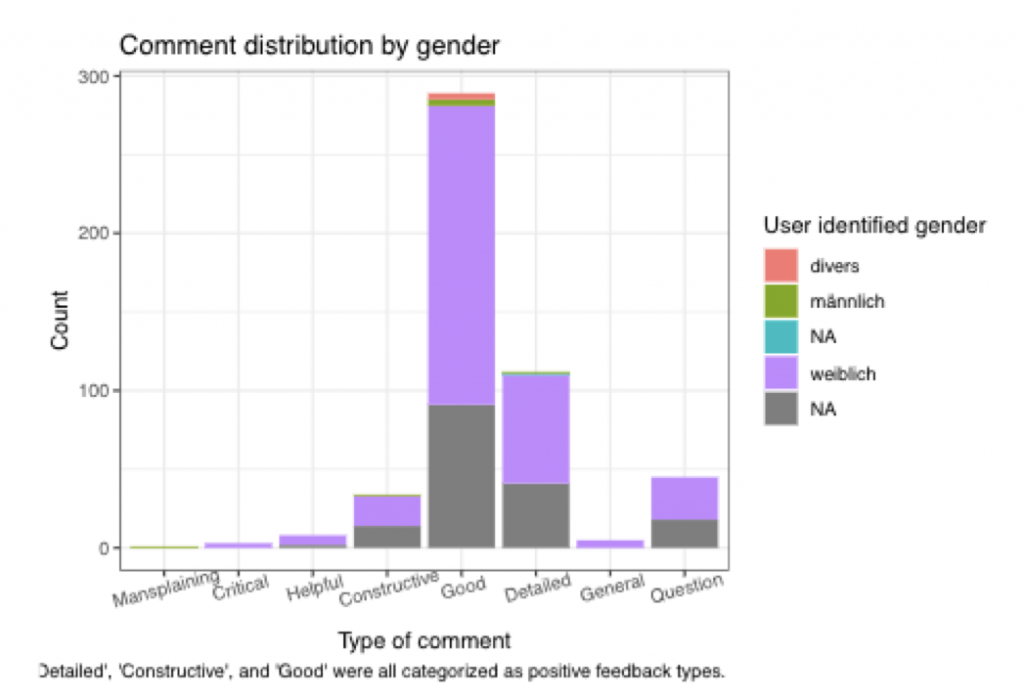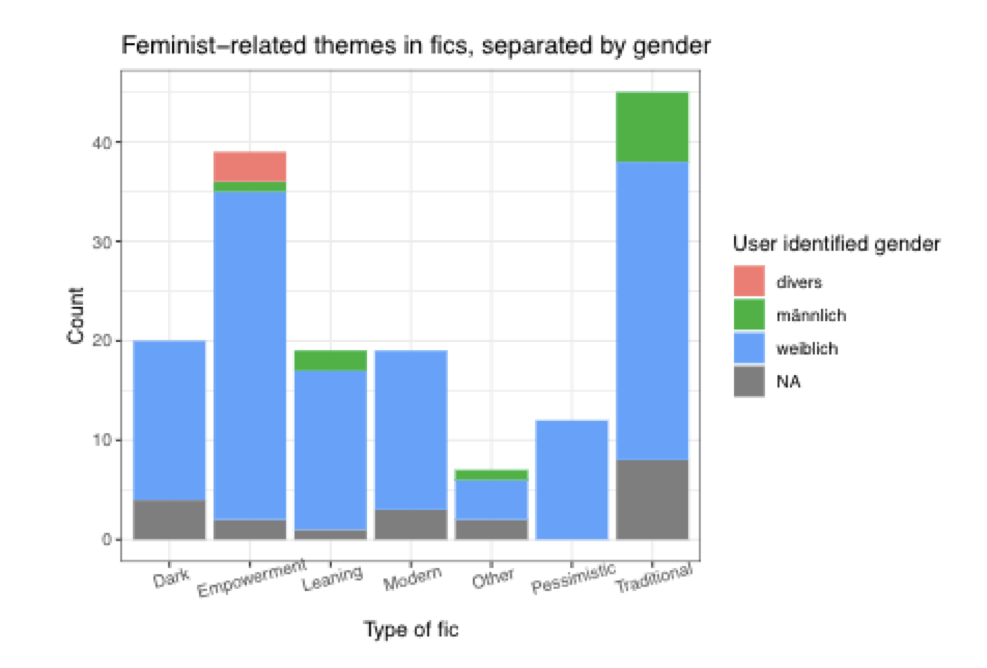Join us on Wednesday, February 24th, 2021 at 12:30pm to hear from one of the newer members of our community – Prof. Jaime Roots and Joey Dickinson ’22. Prof. Roots is a member of the German Department and spent last summer with Joey Dickinson in the Summer Research Scholars program gathering and visualizing data on gender in German fan fiction. We’ve been talking a lot about data in the humanities this year, and this presentation will be a great example of the ways humanities scholars can use data analysis methods in their work.
Register for the talk at http://go.wlu.edu/DHworkshops.
Not able to make the talk? Sign up for the Chesapeake Digital Humanities Conference and catch Jaime’s presentation on February 25th, 2021!
****
Coding for Trends: Author and Commenter Posting Trends in an Online Community
With the advent of the Internet, new means of communication and connectivity have developed. Like never before, individuals are able to join communities of like-minded individuals where they can connect and share their stories and experiences. Here I specifically explore the “Grimms’ Fairy Tales” fan fiction community on FanFiktion.de. Yet despite the many positive advantages presented by advances in technology such as the benefits of forming online communities with likeminded members, sharing stories and experiences quickly and easily with others around the world, the Internet likewise enables (and can often encourage) verbal attacks and discrimination.
In a world of Internet misogyny where users identifying as men are most often attacked based on their ideas, and those identifying as women based on their personhood or appearance, the “Grimm’s Fairy Tales” fandom on FanFiktion.de remains a place where women can outwardly express their ideas with few misogynistic attacks. In order to investigate this online community as a relatively safe space for women to express their ideas on topics such as the consent of male advances, I have created multiple data sets and applied data analysis to more objectively interpret trends within the online community. Through this work I have been able to analyze gender distribution among both writers and commenters in the online forum, the distribution of authors and the types of stories they posted online, the correlation between the types of comments posted and gender, as well as the distribution of feminist themes within stories posted online.

